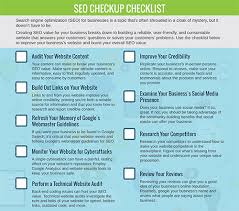SEO Your Company Website: A Comprehensive Guide
Search Engine Optimization (SEO) is crucial for any company looking to establish a strong online presence and attract more organic traffic to their website. By implementing effective SEO strategies, you can improve your website’s visibility on search engine results pages and drive valuable leads to your business. Here’s a comprehensive guide on how to optimise your company website for SEO success:
Keyword Research
Start by conducting thorough keyword research to identify the terms and phrases your target audience is searching for. Use tools like Google Keyword Planner or SEMrush to discover relevant keywords with high search volume and low competition.
On-Page Optimisation
Optimise your website’s on-page elements, including title tags, meta descriptions, headings, and image alt text, with your target keywords. Ensure that your content is well-structured, informative, and engaging for both users and search engines.
Quality Content Creation
Create high-quality, relevant content that provides value to your audience. Regularly update your blog with informative articles, case studies, infographics, and videos that address the needs and interests of your target market.
Mobile-Friendly Design
Ensure that your website is mobile-friendly and responsive across all devices. Google prioritises mobile-friendly websites in its search results, so optimising for mobile usability is essential for SEO success.
Page Speed Optimisation
Improve your website’s loading speed by compressing images, minifying CSS and JavaScript files, and leveraging browser caching. A fast-loading website not only enhances user experience but also boosts your search engine rankings.
Link Building
Build high-quality backlinks from reputable websites in your industry to increase your website’s authority and credibility in the eyes of search engines. Focus on acquiring natural links through guest blogging, influencer outreach, and content partnerships.
Regular Monitoring and Analysis
Monitor your website’s performance using tools like Google Analytics and Google Search Console. Track key metrics such as organic traffic, keyword rankings, bounce rate, and conversion rate to identify areas for improvement and refine your SEO strategy accordingly.
In conclusion, implementing a comprehensive SEO strategy for your company website is essential for driving organic traffic, increasing brand visibility, and generating valuable leads for your business. By following these best practices and staying up-to-date with the latest SEO trends, you can position your company for long-term success in the competitive online landscape.
Essential SEO Tips for Your Company Website: 20 Frequently Asked Questions
- How do I SEO myself for my website?
- Can SEO be done by yourself?
- How do I find SEO for my website?
- How do I get SEO for my business?
- What are the 4 types of SEO?
- What is SEO your company website?
- Can you do SEO yourself?
- What does SEO do for your company?
- How do I check my company SEO?
- What can SEO do for your business and website?
- Is SEO good for website?
- How to do SEO for a company website?
- How does SEO work for a company?
- How do I set up SEO for my website?
- How to SEO your company website?
- How can I practice SEO on my website?
- Do I need SEO for my website?
- How much does it cost to do SEO on a website?
- Is SEO still relevant in 2022?
- How can I do SEO for my website?
How do I SEO myself for my website?
To effectively SEO yourself for your website, start by conducting thorough keyword research to identify relevant terms and phrases that align with your business and target audience. Optimise your on-page elements, such as title tags, meta descriptions, and headings, with these keywords to improve your website’s visibility in search engine results. Create high-quality and engaging content that provides value to your visitors while incorporating your target keywords naturally. Additionally, focus on building a strong backlink profile from reputable websites in your industry to enhance your website’s authority and credibility. Regularly monitor and analyse your website’s performance to track progress and make necessary adjustments to your SEO strategy for optimal results.
Can SEO be done by yourself?
When it comes to the question of whether SEO can be done by yourself, the answer is yes, but with some caveats. While basic SEO tasks such as keyword research, on-page optimisation, and content creation can be tackled by individuals with a good understanding of SEO principles, achieving significant results often requires a more comprehensive approach. SEO is a complex and ever-evolving field that demands continuous learning, technical expertise, and access to advanced tools and resources. For companies looking to maximise their online visibility and drive sustainable growth, partnering with experienced SEO professionals or agencies can provide the strategic guidance and specialised knowledge needed to navigate the intricacies of search engine optimisation effectively.
How do I find SEO for my website?
When seeking to enhance the SEO performance of your company website, the first step is to conduct thorough keyword research to identify relevant search terms and phrases that align with your target audience’s interests. By utilising tools such as Google Keyword Planner or SEMrush, you can uncover valuable keywords with high search volume and low competition. Additionally, focusing on on-page optimisation by strategically incorporating these keywords into your website’s title tags, meta descriptions, headings, and content can significantly improve your site’s visibility on search engine results pages. Regularly creating high-quality content, ensuring mobile-friendliness, optimising page speed, building quality backlinks, and monitoring performance metrics are all integral components of an effective SEO strategy for your website.
How do I get SEO for my business?
To get SEO for your business, start by conducting comprehensive keyword research to identify relevant terms your target audience searches for. Optimise your website’s on-page elements, such as title tags and meta descriptions, with these keywords. Create high-quality content that addresses your audience’s needs and interests. Ensure your website is mobile-friendly and optimised for fast loading speeds. Build authoritative backlinks from reputable websites in your industry. Regularly monitor and analyse your SEO performance using tools like Google Analytics. By following these steps and staying informed about SEO best practices, you can effectively improve your business’s online visibility and attract valuable organic traffic.
What are the 4 types of SEO?
When it comes to Search Engine Optimization (SEO), there are four main types that businesses can leverage to enhance their online visibility and attract more organic traffic to their websites. These include on-page SEO, off-page SEO, technical SEO, and local SEO. On-page SEO focuses on optimising individual web pages with relevant content, keywords, and meta tags. Off-page SEO involves building quality backlinks from external sites to increase domain authority. Technical SEO deals with website structure, speed, and indexing issues to improve overall performance. Local SEO targets local searches by optimising business listings and citations for specific geographical areas. By understanding and implementing these different types of SEO strategies effectively, companies can boost their search engine rankings and drive valuable traffic to their websites.
What is SEO your company website?
Search Engine Optimization (SEO) for your company website refers to the process of enhancing your website’s visibility and ranking on search engine results pages. By strategically optimising various elements such as keywords, content, meta tags, and backlinks, SEO aims to attract more organic traffic to your site and improve its overall performance in search engine algorithms. Ultimately, SEO helps your company website appear higher in search results for relevant queries, driving quality leads and increasing online visibility for your business.
Can you do SEO yourself?
When it comes to the question of whether you can do SEO yourself for your company website, the answer is yes, but with some considerations. SEO is a complex and ever-evolving field that requires a deep understanding of search engine algorithms, keyword research, on-page optimisation, content creation, and more. While basic SEO tasks can be tackled by individuals with a willingness to learn and time to invest, achieving significant results often necessitates the expertise of experienced professionals. It’s crucial to stay informed about best practices and industry trends to effectively optimise your website for search engines and drive organic traffic to your business.
What does SEO do for your company?
Implementing SEO for your company website can yield a multitude of benefits that positively impact your online presence and business growth. SEO, or Search Engine Optimization, enhances your website’s visibility on search engine results pages, making it easier for potential customers to find your products or services. By optimising your website with relevant keywords, high-quality content, and user-friendly design, SEO helps attract organic traffic and improve your website’s ranking in search results. This increased visibility not only drives more targeted traffic to your site but also builds credibility and trust with both users and search engines. Ultimately, SEO can lead to higher conversion rates, increased brand awareness, and long-term success for your company in the digital landscape.
How do I check my company SEO?
To check the SEO performance of your company website, you can start by conducting a comprehensive audit using various online tools and resources. Begin by analysing key on-page elements such as meta tags, headings, and content quality to ensure they are optimised for relevant keywords. Utilise tools like Google Analytics and Google Search Console to monitor important metrics such as organic traffic, keyword rankings, and user engagement. Additionally, assess your website’s backlink profile to gauge its authority and credibility in the eyes of search engines. Regularly review and refine your SEO strategy based on these insights to improve your company website’s visibility and performance in search engine results pages.
What can SEO do for your business and website?
Implementing effective SEO strategies can have a transformative impact on your business and website. SEO can significantly improve your online visibility, making it easier for potential customers to find your website when searching for relevant products or services. By ranking higher in search engine results pages, you can attract more organic traffic to your site and increase brand awareness among your target audience. Furthermore, SEO can help you establish credibility and authority in your industry, ultimately leading to higher conversion rates and increased revenue. In essence, investing in SEO is investing in the long-term success and growth of your business online.
Is SEO good for website?
Implementing SEO strategies for your company website is undeniably beneficial. SEO, or Search Engine Optimization, plays a crucial role in enhancing your website’s visibility on search engine results pages, driving organic traffic, and ultimately increasing your online presence. By optimising your website with relevant keywords, high-quality content, and user-friendly design, you can improve your search engine rankings and attract valuable leads to your business. In today’s digital age, where online visibility is key to success, investing in SEO is a wise decision that can yield long-term benefits for your website and overall business growth.
How to do SEO for a company website?
Optimising a company website for search engines involves a multifaceted approach to enhance its visibility and relevance in online searches. To do SEO for a company website effectively, start by conducting thorough keyword research to identify relevant terms and phrases that your target audience is searching for. Implement on-page optimisation by strategically incorporating these keywords into title tags, meta descriptions, headings, and content. Focus on creating high-quality, engaging content that addresses the needs of your audience while adhering to SEO best practices. Additionally, ensure your website is mobile-friendly, optimise page speed, build quality backlinks from reputable sources, and regularly monitor and analyse performance metrics to refine your SEO strategy for sustained success.
How does SEO work for a company?
Search Engine Optimization (SEO) works for a company by enhancing its online visibility and driving targeted traffic to its website through organic search results. By strategically optimising various on-page and off-page elements, such as keywords, meta tags, content quality, and backlinks, a company can improve its search engine rankings and attract more qualified leads. SEO involves understanding the algorithms of search engines like Google and creating a user-friendly website that meets both the needs of the target audience and the requirements of search engines. Ultimately, an effective SEO strategy can help a company increase brand awareness, boost website traffic, and achieve higher conversion rates.
How do I set up SEO for my website?
Setting up SEO for your website involves a strategic approach to optimising various elements to improve your search engine rankings and increase organic traffic. To begin, conduct thorough keyword research to identify relevant terms and phrases your target audience is searching for. Incorporate these keywords into your website’s meta tags, headings, and content. Ensure your website is user-friendly and mobile-responsive, as Google prioritises mobile-friendly sites. Regularly create high-quality content that addresses the needs of your audience and encourages engagement. Additionally, focus on building high-quality backlinks from reputable websites in your industry to boost your site’s authority. Regularly monitor and analyse your website’s performance using tools like Google Analytics to track key metrics and make informed decisions to refine your SEO strategy for optimal results.
How to SEO your company website?
Optimising your company website for search engines, commonly known as SEO, involves a strategic approach to improve its visibility and ranking on search engine results pages. To SEO your company website effectively, start by conducting thorough keyword research to identify relevant terms and phrases that your target audience is searching for. Incorporate these keywords strategically into your website’s content, meta tags, and headings. Focus on creating high-quality, informative content that addresses the needs of your audience while also being optimised for search engines. Additionally, ensure your website is mobile-friendly, has fast loading speeds, and includes high-quality backlinks from reputable sources. Regularly monitor and analyse your website’s performance using tools like Google Analytics to track progress and make necessary adjustments to enhance your SEO strategy for long-term success.
How can I practice SEO on my website?
To practice SEO on your website effectively, start by conducting thorough keyword research to identify relevant terms and phrases for your target audience. Optimise your website’s on-page elements, such as title tags, meta descriptions, and headings, with these keywords. Create high-quality content that provides value to your visitors and encourages engagement. Ensure your website is mobile-friendly and optimised for fast loading speeds. Implement a solid link building strategy to build authority and credibility. Regularly monitor and analyse your website’s performance using tools like Google Analytics to track progress and make necessary adjustments to enhance your SEO efforts. By following these steps consistently and staying informed about the latest SEO trends, you can improve your website’s visibility in search engine results and attract more organic traffic.
Do I need SEO for my website?
In today’s digital age, having a strong online presence is crucial for the success of any business. Search Engine Optimization (SEO) plays a vital role in improving your website’s visibility on search engines and attracting organic traffic. By implementing effective SEO strategies, you can enhance your online visibility, reach a wider audience, and drive valuable leads to your website. Whether you’re a small startup or a well-established company, investing in SEO for your website is essential to stay competitive in the ever-evolving online landscape and ensure that your target audience can easily find and engage with your business.
How much does it cost to do SEO on a website?
When it comes to the cost of implementing SEO on a website, the answer can vary depending on various factors. The cost of SEO services is influenced by the size and complexity of the website, the competitiveness of the industry, the scope of work required, and the expertise of the SEO provider. Some companies may offer fixed-price packages, while others may charge hourly rates or provide custom quotes based on individual needs. It’s essential to consider that investing in quality SEO services can yield significant long-term benefits by improving your website’s visibility, driving organic traffic, and ultimately boosting your business’s online success.
Is SEO still relevant in 2022?
In 2022, the relevance of SEO (Search Engine Optimization) remains as crucial as ever for businesses aiming to enhance their online visibility and attract organic traffic to their websites. Despite the ever-evolving digital landscape, SEO continues to play a pivotal role in helping companies rank higher on search engine results pages, reach their target audience effectively, and drive valuable leads to their online platforms. With search engines constantly refining their algorithms and user preferences evolving, staying abreast of the latest SEO trends and best practices is imperative for businesses looking to thrive in the competitive online arena of 2022.
How can I do SEO for my website?
To effectively do SEO for your website, start by conducting thorough keyword research to identify relevant terms and phrases your target audience uses. Optimise your website’s on-page elements such as title tags, meta descriptions, and headings with these keywords. Create high-quality, engaging content that provides value to your visitors. Ensure your website is mobile-friendly and optimised for fast loading speeds. Build high-quality backlinks from reputable websites in your industry to boost your site’s authority. Regularly monitor and analyse your website’s performance using tools like Google Analytics to track progress and make necessary adjustments to improve your SEO strategy. By following these steps diligently, you can enhance your website’s visibility in search engine results and attract more organic traffic to grow your online presence effectively.




